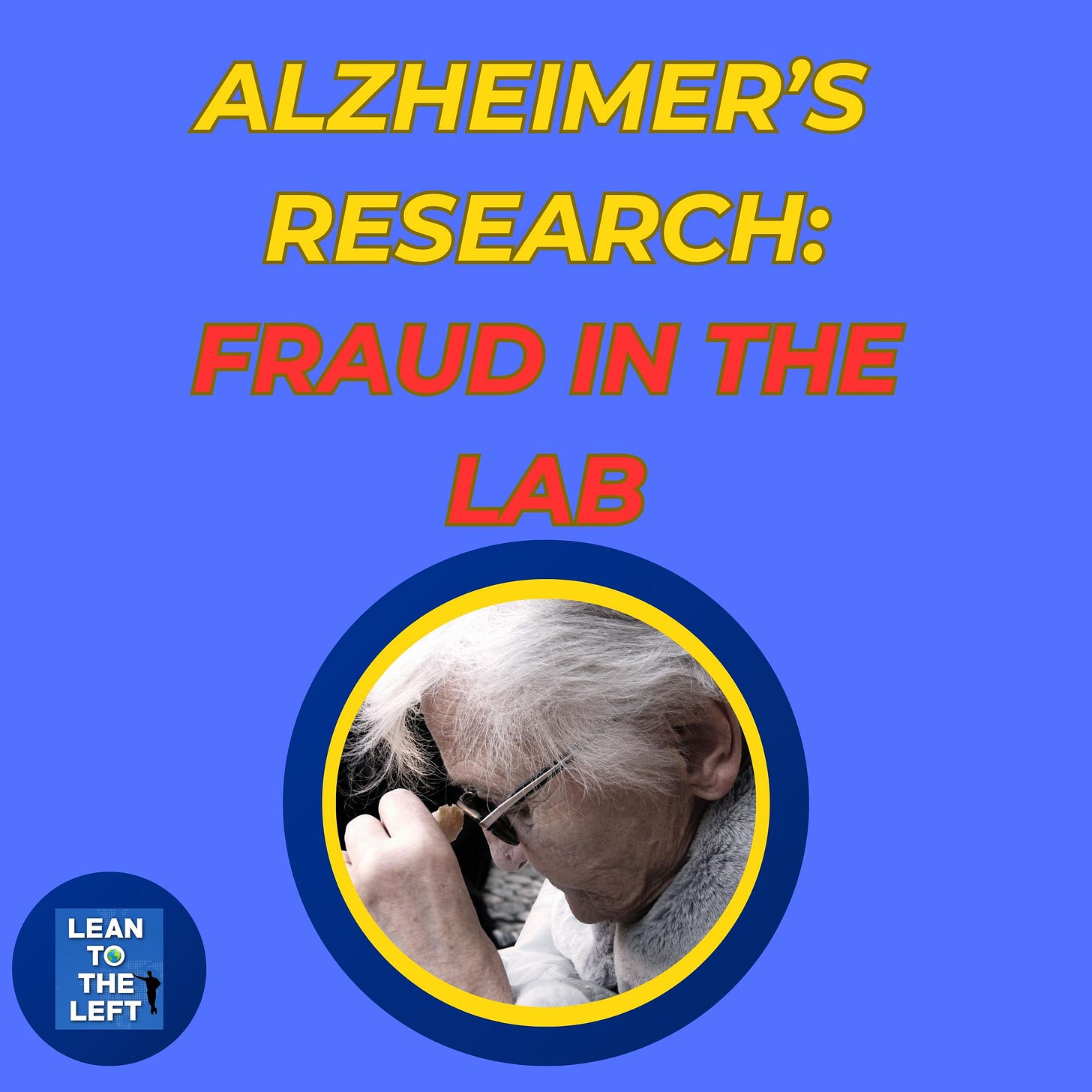Alzheimers and Deception
Alzheimer’s disease—a growing crisis affecting nearly 7 million Americans—is riddled with scientific misconduct and deceit. Investigative journalist Charles Piller uncovers this grim reality in his book “Doctored.”
This investigative narrative reveals a troubling network of falsehoods that has impacted research and stymied the development of effective treatments. In a conversation with Bob Gatty, host of the Lean to the Left podcast, Piller discusses these findings and their broader implications for science and healthcare.
Exposing the Misconduct
Piller explains that numerous Alzheimer’s research papers are tainted by falsified data, particularly through the manipulation of scientific images intended to support untenable hypotheses. This misconduct not only misguides scientific thinking but also impedes drug development efforts.
A critical finding in Piller’s work is the dominance of the “amyloid hypothesis,” which theorizes that amyloid protein deposits are the primary cause of Alzheimer’s. Despite overwhelming evidence that targeting amyloids has repeatedly failed to yield effective treatments, this hypothesis continues to overshadow other potentially fruitful areas of research.
The Role of the FDA
The Food and Drug Administration (FDA), the agency responsible for drug approval in the U.S., is implicated in allowing suspicious drugs to proceed through testing phases despite clear evidence of research misconduct. Piller cites the case of the drug semufilum, developed by Cassava Sciences under questionable methods. Even when substantial evidence of potential fraud emerged, the FDA did not halt the drug trials, leaving patients involved in these trials without the opportunity to explore possibly effective treatments.
Beyond Greed—A Complex Web of Motivations
Money is undoubtedly a powerful motivator in this network of deceit, but it’s also about academic prestige and career advancement. Researchers found to have manipulated data often enjoy boosted standing and greater opportunities, including grant funding. This combination of financial incentives and professional benefits underpins a culture that tolerates misconduct.
The human toll of this deceit is significant. Patients participating in clinical trials of ineffective drugs are not only let down but also lose time that could be spent exploring other promising therapies. Moreover, reputable scientific bodies like the National Institute on Aging, and distinguished researchers like Eliezer Masliah,, have been embroiled in scandals that further erode trust.
A Call to Action for Federal Agencies
Piller argues that agencies such as the FDA and NIH must reform their approaches to tackle this misconduct. Increased vigilance, resources, and personnel are required to ensure the integrity of scientific data before approving research grants and drug applications. Crucially, investigations should be independent, rather than assigned to universities that may have conflicts of interest.
Scientific Renegades Fighting Back
Researchers like Matthew Schrag exemplify the resistance against this entrenched deceit. Through his exploration of lysosomes—the brain’s waste disposal system—Schrag shines light on alternate paths for Alzheimer’s research. Schrag’s work underscores the potential of underexplored theories, such as the infection hypothesis or inflammation treatment, which could pave the way for breakthrough therapies.
Conclusion
The revelations in Charles Piller’s “Doctored” are both alarming and enlightening. They underscore a pressing need for reform within scientific and regulatory institutions. By ensuring greater accountability and exploring diverse hypotheses, the scientific community can better address the Alzheimer’s crisis, potentially steering us towards more effective treatments and a deeper understanding of this devastating disease.
As Piller concludes, vigilance and integrity in science are paramount. Only through comprehensive reform and a commitment to truth in research can we hope to overcome the challenges posed by Alzheimer’s disease. For now, the battle continues, led by those daring enough to challenge the status quo.
CHAPTERS:
00:00 The Alzheimers Crisis: A Growing Tragedy
00:11 Investigative Journalist Charles Piller Exposes Deceit
03:27 The Amyloid Hypothesis and Its Failures
05:14 FDA’s Role and Failures in Drug Approval
06:20 Case Study: The Semufilum Scandal
08:54 The Impact of Misconduct on Patients and Research
19:02 Hopeful Signs and Alternative Research Paths
23:52 Necessary Reforms for Federal Agencies and Journals
29:07 Concerns Under the New Administration
31:26 Charles Piller’s Investigative Journey and Final Thoughts
About Bob Gatty
A former journalist and communications consultant, Bob Gatty is the founder and editor of the Lean to the Left blog and host of this podcast, which focuses on progressive politics and the important social issues of our time. Please check out Bob’s new book, Hijacked Nation: Donald Trump’s Attack on America’s Greatness, now available on Amazon.com, Barnes & Noble and other outlets. Paperback: $11; Hardcover: $24. Digital version: $3.99.
As we continue to explore pressing social issues, I encourage everyone to share their stories and experiences. Your voice matters! DISCLAIMER: Some links in this description are affiliate links, which means if you make a purchase through them, you won’t pay any extra – in fact, you may even save with a discount! Using these links helps support this channel, allowing us to keep providing free content to help you on your journey. Thank you for your support.














Share this post